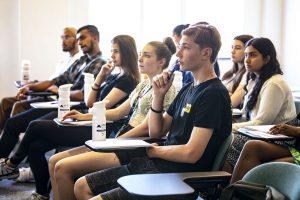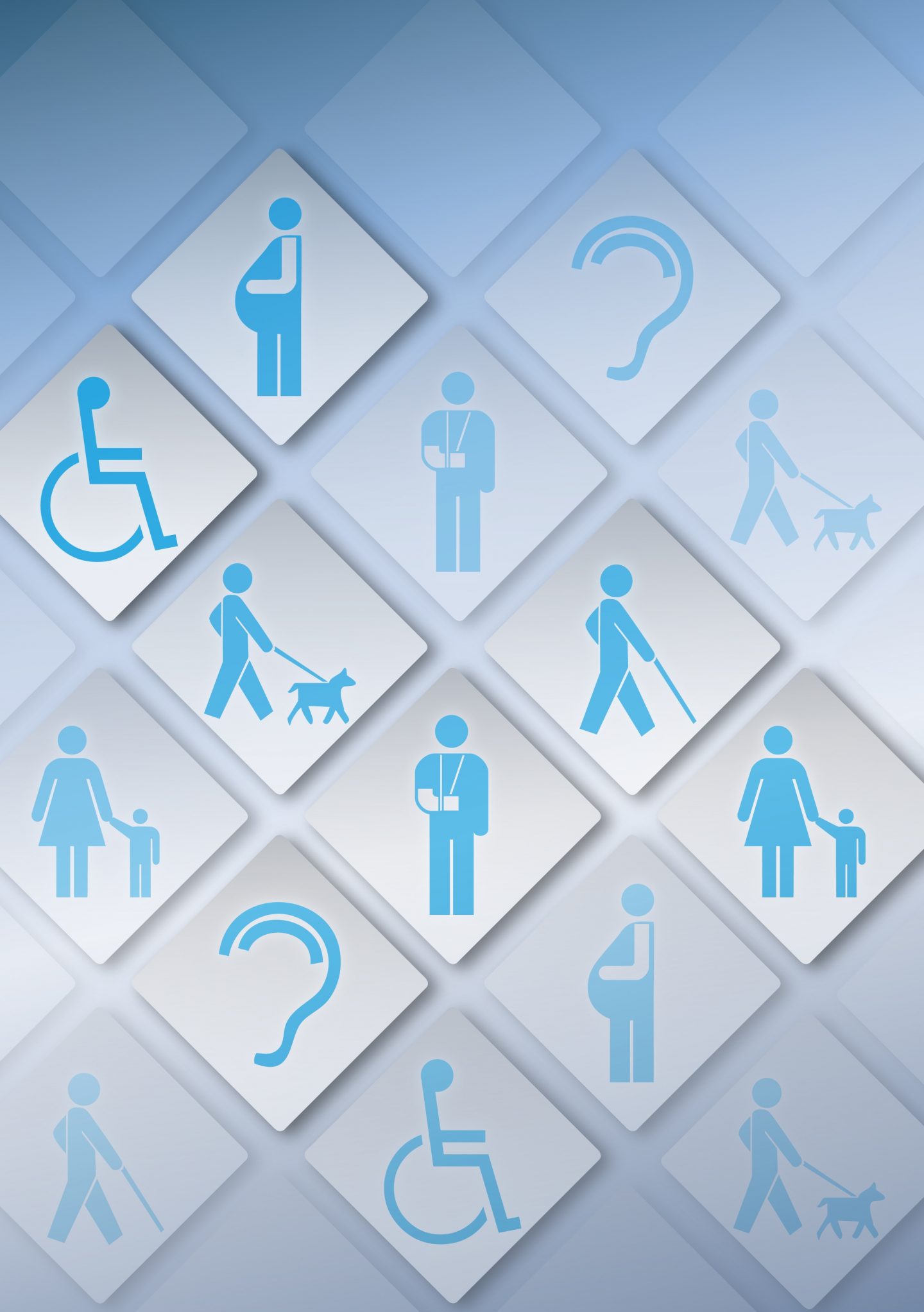
Students
Our students page has resources and other information for you to look at.

Information, useful links and a webinar recording about accessing higher education as a disabled learner.
Under the Equality Act, disability is defined as:
‘a physical or mental impairment which has a substantial and long-term adverse effect on your ability to carry out normal day-to-day activities’. (Disability Rights Uk)
* post-18 education, for example at college or university
For university courses, a good place to start looking for support as a student with disabilities, whatever your disability, is the UCAS website (link below). The site has information about:
Colleges each offer support in a variety of ways so it is important to contact the colleges that you are interested in attending to see how they can help. Under the finance section below are a couple of links regarding funding.
The table illustrates some of the support available at the institutions but is not necessarily their complete package therefore we suggest you check with the individual institutions to obtain details of their full suppport service.
| Support Offered | Oxford Brookes University | University of Oxford | Buckinghamshire New University | University of Reading | Abingdon & Witney College | New College Swindon |
| Pre entry | ||||||
| The institute is a registered Disability Confident Leader | ✔️ | ✔️ | ✔️ | ✔️ | ✔️ | |
| Support to apply for the Disabled Studnts Allocance (DSA). This can be used for a variety of things including: equipment, eg computer, software, specialist 1:1 study skills support, mentoring, IT training. | ✔️ | ✔️ | ✔️ |
✔️ A&WC will discuss individual needs and work to ensure accessibility based on the needs of individual applicants
|
✔️ | |
| Registration with the institute’s support service to ensure support | ✔️ | ✔️ | ✔️ | ✔️ | ✔️ | |
| Inclusive Support Plan – to access support and exam arrangments | ✔️ | ✔️ | ✔️ | |||
| Assessment for dyslexia/Specific learning difficulties (SpLD) | ✔️ | ✔️ | ✔️ | ✔️ | ||
| Specific induction day/tour | ✔️ | ✔️ | ||||
| During studies | ||||||
| Dedicated/named advisors | ✔️ | ✔️ | ✔️ | ✔️ | ||
| coursework extension/exam adjustment if required | ✔️ | ✔️ | ✔️ | ✔️ | ||
| Accessibility e.g. blue badge parking | ✔️ | ✔️ | ✔️ | ✔️ | ✔️ | |
| Prioity accomodation if eligible | ✔️prioity given | ✔️each college has a number of adapted rooms | ✔️ | ✔️ | not applicable | not applicable |
| A range of non-medical help which might include: mentoring tutoring support workers scheme – initiative to liaise with your support from external providers if required e.g a British Sign Language Interpreter or Specialist Notetaker. counselling skills support a safe space/room |
✔️ | ✔️ | ✔️ | ✔️ | ✔️ | |
| Assisted technology equipment | ✔️ | ✔️ | ✔️ | ✔️ | ✔️ | |
| Career planning including support with placements | ✔️ | |||||
| Post study | ||||||
| Graduation support | ✔️ | |||||
| HEI/FEC support page links | Oxford Brookes University FAQs | University of Oxford | Buckinghamshire New University | University of Reading | Abingdon & Witney College | New College Swindon |
Table correct as of August 2022
In this resource you will find helpful links and information about the sort of support that is available at college or university, where to find help, an application help list and suggestions for questions to ask on your university open day.
Download the booklet by clicking the link below.
The webinar covers key steps you need to take before and after applying to higher education to ensure you have access to the support you are entitled to. There is also the chance to hear from former university students about their experiences accessing disability support.
Speakers:
Lord Holmes’ recent report revealed that proportionately, fewer young people with disabilities move on to higher education. In fact progression rates ranged from 20.8% for pupils receiving SEN support in school, to just 8.4% for pupils with a statement of SEN or Education, Health and Care plan (EHCP).
These young people may not be aware that they could be eligible for the Disabled Students’ Allowance, which can cover some of the extra study-related costs students may incur due to their disability, mental health condition, or learning difference. Unfortunately, 60% of eligible students start university unaware that this support is available to them.
Take a look at this infographic from A2B assessments which provides a step-by-step breakdown of how students can apply for DSA, what they need to do and when:
There may be a number of reasons why you need financial support to attend college and the following organisations offer inforamation, advice an guidance about how to apply:
In addition to a helpline, Disability Rights UK also produces a range of free education factsheets and guides for disabled students, trainees and apprentices on post 16 education and training. You can access these by clicking the link below.
Disability Rights UK also have an Into Apprenticeships 2022 guide which has lots of information about things like how to find an apprenticeship, whether the training will be accessible and what support is available in the workplace. It also contains inspirational stories by disabled apprentices, about their personal experiences and challenges, plus lots of other help and websites. You can download the guide below.
Local councils are often able to support students with a disability in a number of different ways. The links for each local council, in our regions, can be accessed by clicking on each name in bold below:
Berkshire is covered by the following: West Berkshire, Windsor and Maidenhead, Wokingham, Bracknell Forest, Reading and Slough. (Brighter Futures for Children work with young people in Reading up to the age of 25)
The Special Educational Needs and Disabilities Information Organisations Group (SENDIOG) has links to organisations who can provide free and impartial advice to children, young people and their families. You can access their information via this link: SENDIOG
The Council for Disabled Children website offers some resources, accessible via their education and resources page, which include guidance, advice and toolkits on both education policy and practice for professionals and families.